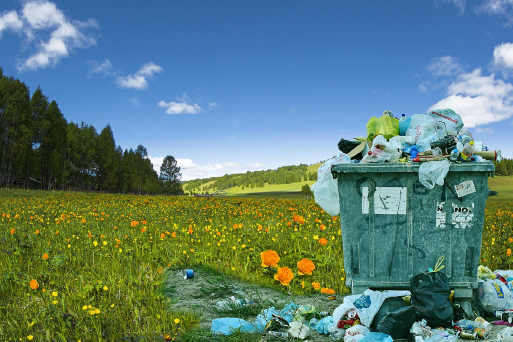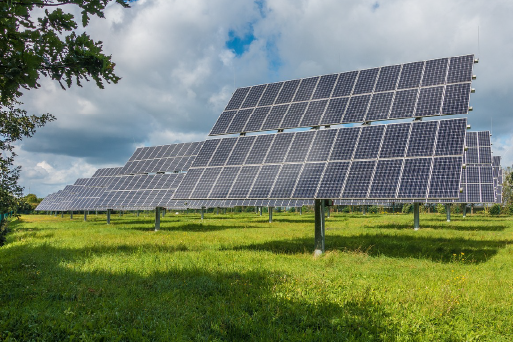3rd August 2023
As the world's focus on environmental sustainability intensifies, industries are seeking innovative solutions to reduce their ecological footprint. Among these solutions, recycled paper products have gained significant momentum, revolutionising the paper industry's production process.
In this blog post, we will explore the modern green production practices behind recycled paper products, highlighting their eco-friendly benefits and the crucial role they play in shaping a more sustainable future.
Advanced Waste Collection & Sorting

Modern recycling initiatives have embraced advanced waste collection and sorting technologies to optimise the process of gathering post-consumer waste paper. Innovative collection methods, such as curbside recycling programs and dedicated drop-off centres, facilitate the efficient retrieval of discarded paper materials from households, offices, and businesses.
Additionally, automated sorting technologies enable the quick separation of various paper types, streamlining the recycling process and ensuring high-quality raw materials for recycled paper production.
Pulp Decontamination Techniques
In the quest for cleaner and more sustainable recycled paper, state-of-the-art decontamination techniques have become an integral part of the production process. Advanced deinking technologies use environmentally-friendly agents to remove ink, adhesives, and other impurities from the recycled paper pulp.
These techniques not only enhance the overall appearance and quality of recycled paper products but also reduce the demand for harmful chemical solvents, minimising their impact on the environment.
High-Efficiency Pulping Methods
Modern green production process practices emphasise high-efficiency pulping methods to conserve energy and reduce water consumption. Innovative pulping technologies, such as pressure screening and gravity thickeners, optimise the mechanical breakdown of waste paper into pulp, minimising energy input.
Moreover, water-saving systems and closed-loop water recycling processes have been integrated to further reduce water usage during the pulping stage, making recycled paper production more environmentally sustainable.
Pioneering Papermaking Techniques
Advanced papermaking techniques have ushered in a new era of recycled paper production. Innovations in forming, pressing, and drying methods enable the creation of recycled paper with consistent quality, strength, and appearance.
The use of high-performance paper machines and energy-efficient dryers contributes to reduced greenhouse gas emissions, making the production process more climate-friendly compared to conventional paper making methods.
Incorporating Renewable Energy Sources

A hallmark of modern green production practices is the integration of renewable energy sources into the recycled paper manufacturing process. Many recycling facilities and paper mills have adopted solar, wind, or hydroelectric power to supplement their energy needs, reducing their reliance on fossil fuels.
By embracing renewable energy, the recycled paper industry contributes to global efforts in combating climate change and transitioning towards a greener energy future.
Closed-Loop Supply Chains
Modern recycled paper manufacturers are increasingly embracing closed-loop supply chains, ensuring a continuous and sustainable flow of raw materials.
Collaborations with waste management companies, recycling centres, and collection agencies create a seamless system that enables efficient paper recycling and minimises waste in landfills. Closed-loop supply chains promote resource conservation, reduce environmental pollution, and contribute to the development of a circular economy.
Green Certifications & Eco-Labels
To demonstrate their commitment to environmental stewardship and responsible production, many recycled paper products carry green certifications and eco-labels.
These certifications, such as the Forest Stewardship Council (FSC) and the Sustainable Forestry Initiative (SFI), assure consumers that the paper comes from sustainably managed sources. Furthermore, eco-labels indicate that the paper product meets specific environmental standards, encouraging consumers to make eco-conscious choices.
Emphasising Education & Awareness
In the modern world, education and awareness play a vital role in driving green production process practices behind recycled paper.
Recycling facilities, paper manufacturers, and eco-conscious organisations actively engage in educational campaigns to promote recycling and highlight the positive impact of using recycled paper products. By fostering environmental awareness, these initiatives empower individuals and businesses to make informed choices that support sustainability.
The modern green production process practices behind recycled paper products are a testament to human ingenuity and dedication to environmental conservation. From advanced waste collection and sorting to pioneering pulping techniques and renewable energy integration, the recycled paper industry has undergone a remarkable transformation.
These eco-friendly practices not only reduce the environmental impact of paper production but also contribute to resource conservation and the creation of a circular economy. By choosing recycled paper products, consumers and businesses actively participate in building a greener future, where sustainable practices are at the forefront of industry evolution.








